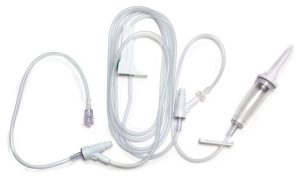The healthcare industry has evolved significantly in recent years, with the adaptation of technology and introduction of innovative management systems. One of the crucial areas of focus is the Healthcare Revenue Cycle Management (RCM). This process is the financial backbone of healthcare facilities, ensuring smooth operation, proper reimbursement, and financial sustainability. However, the increasing complexity of the healthcare landscape, coupled with the ever-changing regulations, has seen many organizations turning to outsource RCM.
Understanding Healthcare Revenue Cycle Management
Healthcare Revenue Cycle Management (RCM) is the financial process that utilizes medical billing software to track patient care episodes from registration and appointment scheduling to the final payment of a balance. It is a cycle that starts when a patient makes an appointment and continues until the patient’s balance is zero.
The process includes patient pre-registration, registration, charge capture, claim submission, remittance processing, insurance follow-up, and patient collections. Each of these steps is essential to ensure that healthcare providers are appropriately paid for the services they render.
The Importance of Revenue Cycle Management in Healthcare
Revenue Cycle Management in healthcare is vital because it ensures that healthcare providers get paid for their services. This is especially important in the modern healthcare industry, where revenue is often uncertain due to the complexities of insurance reimbursement and government regulations.
Moreover, efficient RCM improves patient satisfaction. When the billing process is efficient and transparent, patients are more likely to pay their bills on time and in full, improving the healthcare provider’s cash flow.
The Benefits of Outsourcing RCM
Outsourcing RCM is a strategic decision that can bring numerous benefits to healthcare organizations. Here are some compelling reasons for healthcare providers to consider this option:
- Access to Expertise: Outsourcing RCM allows healthcare providers to tap into the vast knowledge and expertise of vendors who specialize in RCM. These experts are up-to-date with the latest regulations, billing codes, and industry trends, ensuring that healthcare providers get the most out of their billing process.
- Cost-Effective: Maintaining an in-house RCM team can be expensive, considering the cost of hiring, training, and retaining staff. Outsourcing RCM eliminates these costs, making it a more cost-effective option.
- Improved Efficiency: RCM vendors use the latest technology and best practices to streamline the billing process, thereby improving efficiency. This results in quicker reimbursements and improved cash flow.
- Focus on Patient Care: When healthcare providers outsource RCM, they can focus more on their core function – providing excellent patient care. This can lead to improved patient satisfaction and better health outcomes.
In conclusion, effective healthcare revenue cycle management is crucial for the financial sustainability of healthcare providers. However, due to its complexity, outsourcing RCM is a strategic move that many healthcare organizations are considering. With access to expertise, cost-effectiveness, improved efficiency, and allowing healthcare providers to focus more on patient care, outsourcing RCM indeed becomes a compelling option.





